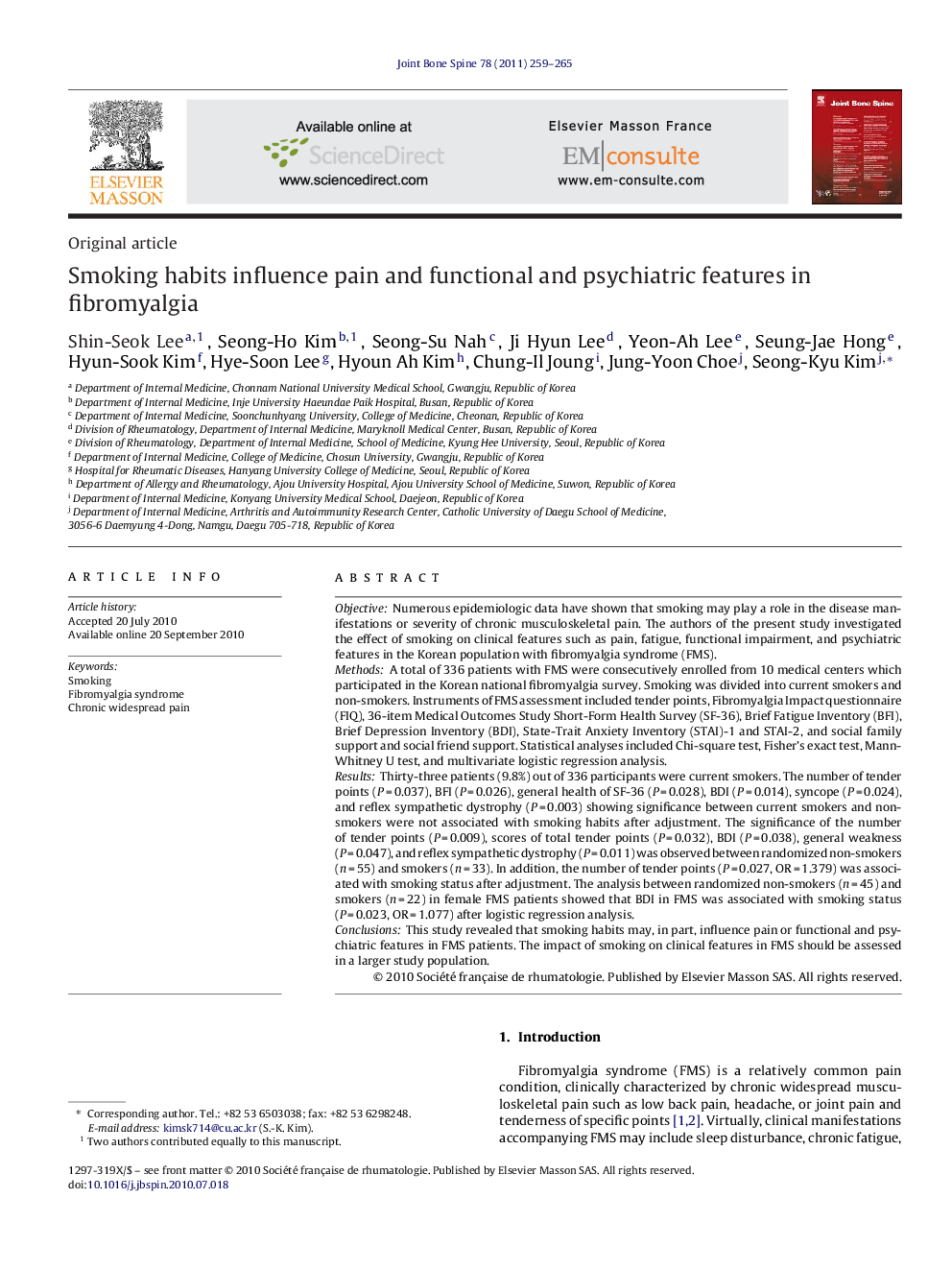| کد مقاله | کد نشریه | سال انتشار | مقاله انگلیسی | نسخه تمام متن |
|---|---|---|---|---|
| 3366337 | 1218399 | 2011 | 7 صفحه PDF | دانلود رایگان |

ObjectiveNumerous epidemiologic data have shown that smoking may play a role in the disease manifestations or severity of chronic musculoskeletal pain. The authors of the present study investigated the effect of smoking on clinical features such as pain, fatigue, functional impairment, and psychiatric features in the Korean population with fibromyalgia syndrome (FMS).MethodsA total of 336 patients with FMS were consecutively enrolled from 10 medical centers which participated in the Korean national fibromyalgia survey. Smoking was divided into current smokers and non-smokers. Instruments of FMS assessment included tender points, Fibromyalgia Impact questionnaire (FIQ), 36-item Medical Outcomes Study Short-Form Health Survey (SF-36), Brief Fatigue Inventory (BFI), Brief Depression Inventory (BDI), State-Trait Anxiety Inventory (STAI)-1 and STAI-2, and social family support and social friend support. Statistical analyses included Chi-square test, Fisher's exact test, Mann-Whitney U test, and multivariate logistic regression analysis.ResultsThirty-three patients (9.8%) out of 336 participants were current smokers. The number of tender points (P = 0.037), BFI (P = 0.026), general health of SF-36 (P = 0.028), BDI (P = 0.014), syncope (P = 0.024), and reflex sympathetic dystrophy (P = 0.003) showing significance between current smokers and non-smokers were not associated with smoking habits after adjustment. The significance of the number of tender points (P = 0.009), scores of total tender points (P = 0.032), BDI (P = 0.038), general weakness (P = 0.047), and reflex sympathetic dystrophy (P = 0.011) was observed between randomized non-smokers (n = 55) and smokers (n = 33). In addition, the number of tender points (P = 0.027, OR = 1.379) was associated with smoking status after adjustment. The analysis between randomized non-smokers (n = 45) and smokers (n = 22) in female FMS patients showed that BDI in FMS was associated with smoking status (P = 0.023, OR = 1.077) after logistic regression analysis.ConclusionsThis study revealed that smoking habits may, in part, influence pain or functional and psychiatric features in FMS patients. The impact of smoking on clinical features in FMS should be assessed in a larger study population.
Journal: Joint Bone Spine - Volume 78, Issue 3, May 2011, Pages 259–265